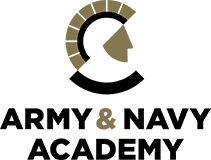 Many Americans are rather unfamiliar with boarding schools, despite their awareness of independent private day schools. So, let’s begin with a brief overview before we dive into the many benefits of boarding school for teenagers. Most boarding schools in the U.S. have a combination of both boarding and day students. Some schools are more heavily weighted towards boarding, while others are predominately day schools with a small boarding program.
Many Americans are rather unfamiliar with boarding schools, despite their awareness of independent private day schools. So, let’s begin with a brief overview before we dive into the many benefits of boarding school for teenagers. Most boarding schools in the U.S. have a combination of both boarding and day students. Some schools are more heavily weighted towards boarding, while others are predominately day schools with a small boarding program.
According to Boarding School Review, there are approximately 300 boarding schools in the U.S. that belong to the Association of Boarding Schools, whereas, there are over 34.000 private schools in the U.S. Private schools actually account for approximately 25% of our nation’s schools. Close to 78% of private school students attend schools with a religious affiliation and most private schools have fewer than 300 students according to the Council for American Private Education.
Unlike private day schools, boarding schools offer a full residential experience similar to colleges with dorms, meals, and weekend activities. If a student opts into a “day” program, the student lives at home and commutes to school. Day students at boarding school campuses can participate in sports, clubs, tutoring, and other activities, but they do not stay on campus overnight and typically only eat lunch on campus.
Some boarding schools are for all-girls or all-boys, and some have specialized programs such as: STEM, STEAM, ESOL, leadership training, character development, aviation, computer science, and learning differences. Some boarding schools are very focused on the visual and performing arts like The Idyllwild School of the Arts, whereas other schools offer specialized outdoor programs schools like Culver with their equestrian programs or Army and Navy Academy with their surf program.
Often overlooked, military boarding schools, offer a structured day, traditional values, and a focus on leadership and character development. Similar to other boarding schools, they are also college preparatory schools for teenagers. These students, referred to as “cadets”, often matriculate to public and private universities, but a small percentage of their students do elect to attend an ROTC university or attend one of the top military academies: United States Military Academy at West Point, United States Naval Academy at Annapolis, United States Coast Guard Academy, United States Air Force Academy or the United States Merchant Marine Academy.
Unlike other boarding schools, military academies for middle and/or high school often employ civilian faculty, but may employ retired military officers to mentor, coach, and train students.
What is life like on a boarding school campus?
Campus life truly differentiates the boarding school experience. The daily life at boarding school is usually structured and students quickly learn to organize their time according to assemblies, classes, tutorial periods, sports, clubs, meals, rest and relaxation times, study timeframes, personal hygiene, prep for the next day, and dorm meetings.
Similar to a college or university setting, classes are held at set times and many boarding schools offer some type of home period, tutorial period, after school faculty hours, and tutoring services with peers or service providers. Open office hours are similar to college campuses, where professors are available for student drop-ins.
Unlike private day schools, it is not unusual for some faculty and staff to actually reside on the boarding school campus. Many of the faculty play roles in coaching athletics, assisting with residential life, and other duties. At boarding schools, the school principal is typically called the Head of School and in some cases, like at military academies, they have a President. Private non-profit boarding schools work under the guidance of a volunteer Board of Trustees.
What are the benefits of boarding school?
Hotchkiss, a top boarding school in Connecticut, created this list below based on input, data, statistics, and facts:
- Challenging Academics
- Peer Learning
- Small Class Sizes
- Personal Growth
- A Learning-Conducive Atmosphere
- Social Maturity
To elaborate, boarding school students learn to live away from their parents, learn how to live with a roommate, and benefit from regular meals and exercise. This is all very good preparation for college and life. Every day is filled with decisions and new things to do and try, so students learn how to manage their time, set goals, and make independent decisions. These are some of the key benefits and reasons why students actually choose to attend a boarding school.
Students get to engage in a wide variety of sports, clubs, trips, and activities without the need for “shuttle bus parenting.” This gives teens a chance to become far more independent. When they do go home to spend time with family, it is quality time, and parents often report better relationships with their teen as a result. Also, don’t overlook the benefits of the arts. As public schools cut back on funding, boarding schools have continued to offer amazing programs in the visual and performing arts, as well as other electives.
And let’s not overlook the benefit of living and learning about another city, town, state, or even country. Boarding school students get a chance to mix with various cultures and ethnicities and gain broader perspectives, often forging friendships that last a lifetime. Every boarding school has unique programs. To name a few in California, at Webb in Claremont, you will find an amazing paleontology museum, at Stevenson in Monterrey, you will find a strong broadcasting program, and at Army and Navy, electives include: cyber security, unmanned aerial systems, aviation, and band.
The umbrella of support on boarding school campuses comes from the whole community, so rather than hearing from parents only for guidance, they have a whole community that shares similar values, daily protocols, policies, and procedures. This provides stability and direction for teens during their formative years.
How much does a boarding school cost?
The range is quite wide and can vary depending on a number of factors. Most boarding schools offer financial aid, payment plans, and loan programs. If you think boarding schools are mainly for rich kids, check again as private schools are becoming more and more focused on affordability. They are also being impacted by societal trends to offer a rich diversity of students, so ask about questions pertaining to accessibility.
Most schools follow a “need-blind” financial aid process, so that admission applications are not reviewed on the basis of affordability. Most private schools require the Personal Financial Statement (PFS) online application through the NAIS School and Student Services (SSS) for financial assistance evaluation. It is always best to gain acceptance before submitting any requests or documentation for financial assistance. This ensures your application is “need-blind.”
Why students and parents choose boarding school?
There are a number of reasons why a boarding school can be a great choice. If a family is going through a separation, divorce, or serious illness, sometimes it can allow the child the space to focus on their own development without the daily stress at home.
Sometimes the parents are no longer living and grandparents or relatives have custody, but may feel ill-equipped to provide the direction, support, and resources the child may need. It is also not uncommon for single parents to want the direction and support that only a boarding school can provide to their teenager. For students, most teenagers choose a boarding school because they want to become more independent, live away from home to prepare for college, receive more academic support and have access to friends and activities on campus.
How to find out if boarding school is right for your teen?
First, think about your child’s interests and your own expectations. What do you hope will be the outcomes of attending a boarding school? Do you want your child to improve executive function skills, become more social, improve communications, learn how to lead, develop specialized skills in an area of interest, or improve their academic records for college or university admission?
In terms of your search, it is pretty easy to explore boarding schools online. It usually begins with doing a Google search for boarding schools in a specific state or a type of boarding school (all-girls, all-boys) or based on a specialization. You can also check for lists and reviews on Boarding School Review, Niche, and Great Schools. Once you have a narrow list, make a call to the office of admission to ask lots of questions. Then make an appointment to go on tour or do a full appointment. A full appointment can include: campus tour, student interview, writing sample, parent consultation, and sometimes testing.
Sometimes, it is wise to compare a few schools before making a decision. To avoid redundant paperwork or apply to more schools, you can even do the SAO common application if you wish. Some boarding schools prefer that you apply and gather documents in preparation for your campus visit, but if you live locally, many of them will offer you a tour-only appointment if you prefer that as your first step.
When you go on tour, hopefully, you will connect with a student, so you can ask lots of questions. You may even be able to stay for lunch or contact current parents to get some insights. In short, a boarding school can be a great way to help your child mature and grow academically, socially, and emotionally. The reasons for attending vary widely, but focus on the benefits for your teenager.
For information about admissions, visit the Army and Navy Academy website at https://archive.armyandnavyacademy.org; e-mail at admission@armyandnavyacademy.org or phone at 888.762.2338.
#privateschool #boardingschool #militaryschool #militaryboardingschool #militaryacademy #education #academics #highschool #whatisboardingschool #whatisboardingschoollike #howmuchdoesboardingschoolcost #boardingschoolfinancialaid #boardingschooldiversity #all-boysboardingschools #Niche #greatschools #boardingschoolreview


